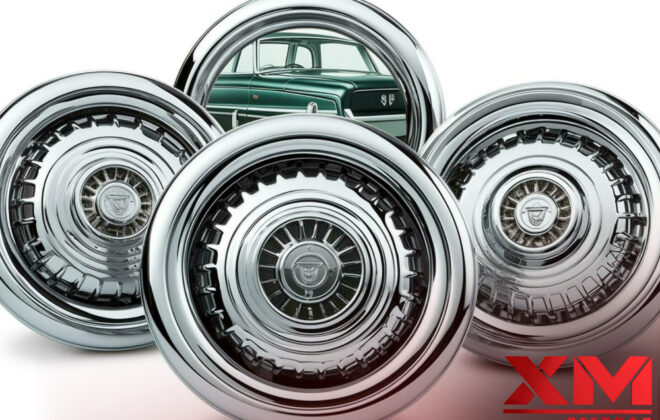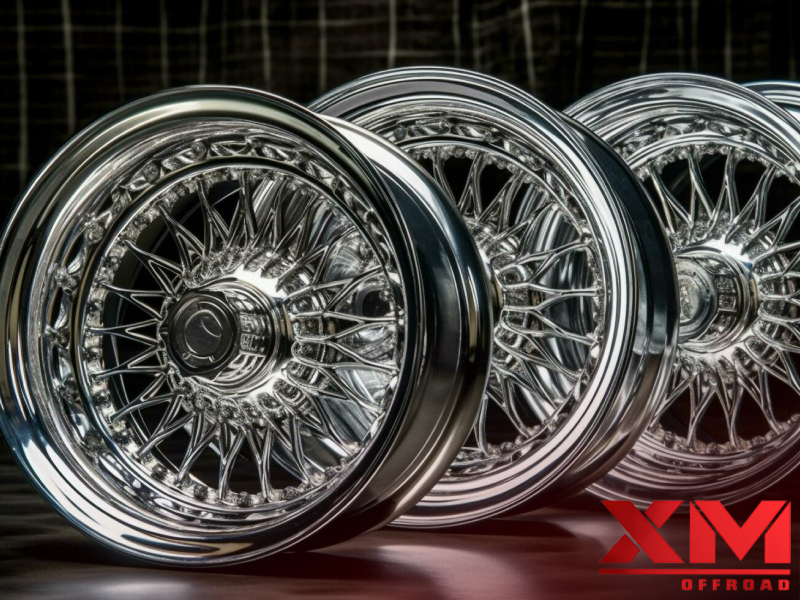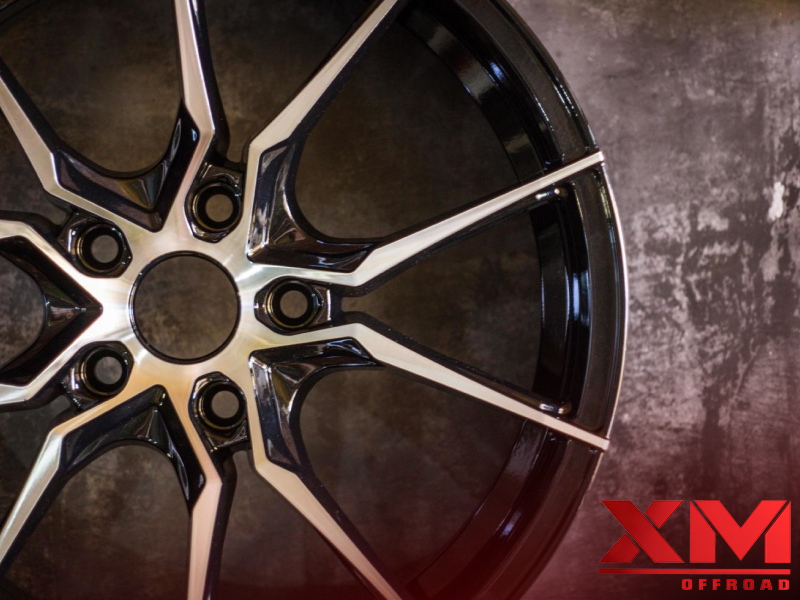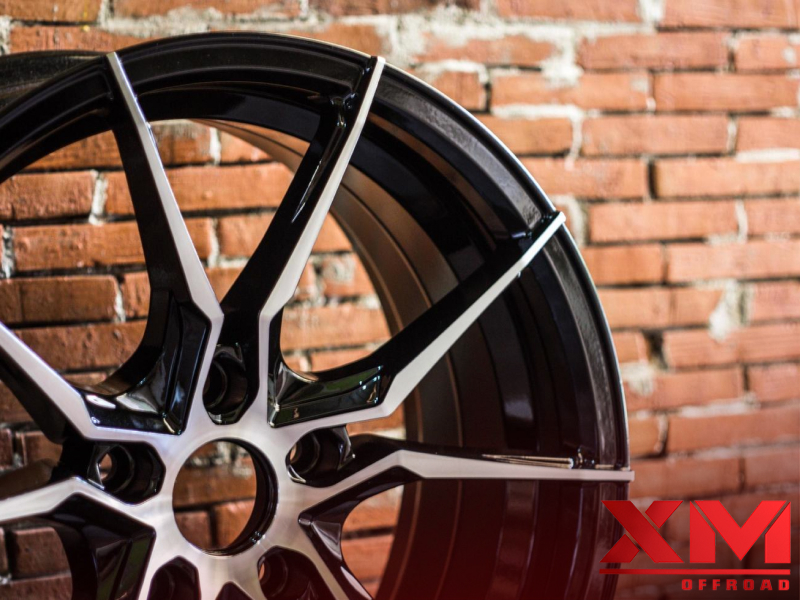Selecting the right wheels for your vehicle is crucial as they significantly impact its performance, handling, and overall aesthetics. With numerous wheel options on the market, choosing the perfect set can be daunting. This comprehensive guide aims to help you understand the various kinds of wheels available and make an informed decision based on your art needs and preferences.
Wheels Made of Steel Material
Steel wheels are the most basic and traditional wheels on many vehicles. They are made from solid steel and are particularly relatively inexpensive, making them a popular choice for budget-conscious drivers. Steel wheels are sturdy, durable, and withstand rough driving conditions like potholes and curbs. They are also less susceptible to damage from corrosion, making them suitable for regions with harsh weather conditions. However, steel wheels are heavier than other types, affecting your vehicle’s performance and fuel efficiency. They may provide a different level of performance and aesthetics than other options, but they are a practical choice for daily commuters and work vehicles.
Wheels Made of Alloy Material
Alloy wheels are constructed from a combination of aluminum and other lightweight metals. They have gained popularity due to their enhanced performance, aesthetics, and improved fuel efficiency. Alloy wheels are lighter than steel wheels, reducing unsprung weight and improving handling and braking performance. Their lightweight nature also translates to better fuel economy and reduced wear on suspension components. Moreover, alloy wheels come in various designs and finishes, allowing you to customize the look of your vehicle. From sleek and minimalist designs to intricate patterns, alloy wheels offer numerous options to match your style.
Wheels Made of Forged Material
Forged wheels are the top-of-the-line option in terms of performance and quality. They are created by subjecting a solid piece of aluminum alloy to intense pressure, resulting in a wheel that is exceptionally strong, durable, and lightweight. Forged wheels have a denser grain structure, making them less prone to cracking under extreme conditions. The lightweight nature of forged wheels improves your vehicle’s handling, acceleration, and braking performance. Their superior strength allows them to handle the stress of aggressive driving, making them popular among motorsport enthusiasts and high-performance car owners. However, their advanced manufacturing process and premium materials make forged wheels considerably more expensive than other types.
Wheels Made of Chrome
Chrome wheels, or chrome-plated wheels, are regular steel or alloy wheels that undergo a chrome-plating process, resulting in a shiny, mirror-like finish. They are known for their eye-catching appearance and can add a lap of luxury to any vehicle. Chrome wheels are favored by many car enthusiasts looking to enhance the visual appeal of their cars. While chrome wheels are undoubtedly attractive, they require regular maintenance to keep their shine and protect them from corrosion. They are also more susceptible to scratching and chipping, so care must be taken when cleaning or driving with them. Additionally, the added weight of the chrome plating can marginally affect performance.
Painted Wheels for Customized Appearance
Painted wheels are a popular option for those seeking a more customized appearance without the added expense of chrome wheels. These wheels are typically made of steel or alloy and are coated with various colors or finishes, such as matte, glossy, or metallic. Painted wheels allow you to match your vehicle’s color scheme or experiment with unique designs to express your individuality. One advantage of painted wheels is that they are relatively easy to maintain. In case of scratches or chips, they can be touched up or repainted without a significant cost. However, like chrome wheels, painted wheels may be more prone to damage from curb rash or other external factors.
Wheels Coated with a Dark Finish
Black wheels have become increasingly popular in recent years, especially in the aftermarket automotive industry. These wheels are usually painted black or coated with a dark finish to create a sleek and modern look. Black wheels can complement various vehicle colors and styles, adding a touch of sophistication and aggressiveness. However, black wheels may require more frequent cleaning and maintenance, as dust, brake dust, and road grime can be more visible on dark surfaces. Despite this, their aesthetic appeal and versatility make them a trendy choice among car enthusiasts and drivers looking to give their vehicles a distinctive appearance.
Off-Road Wheels for Rough Terrains
Off-road wheels are specially designed for vehicles that frequently navigate rough terrains, such as dirt trails, rocky paths, and mud-covered surfaces. These wheels are built to withstand the rigors of off-road driving, with features like reinforced construction, larger rim sizes, and robust materials. Most 30 inch off-road rims and wheels are made from alloy or steel to balance strength and weight. They often have a beadlock design, which prevents the tire from coming off the wheel when driving at low tire pressures, offering enhanced traction on challenging terrains.
Racing Wheels for High-Speed Performance
Racing wheels are engineered for high-speed performance, making them an ideal choice for motorsports and track enthusiasts. These wheels prioritize weight reduction and aerodynamics to maximize a vehicle’s agility and speed. They are often forged to ensure they are lightweight yet durable enough to withstand intense track conditions. Racing wheels may include lightweight materials, improved airflow, and precise wheel offsets to optimize handling and cornering capabilities. However, they may need to be more practical for daily driving due to their focus on performance over comfort.
Final Thoughts
Selecting the various kinds of wheels for your vehicle is essential for enhancing its performance, appearance, and overall driving experience. Steel wheels are a budget-friendly and robust option for everyday commuting, while alloy wheels balance performance and aesthetics. Forged wheels excel in performance but come with a higher price tag. Chrome wheels and painted wheels add flair to your vehicle, while black wheels exude a more modern and aggressive look.
Read Also: 5 Important Factors that Influence the Cost of Replacing Tire Rims
Off-road wheels and racing wheels cater to specific driving needs, with durability and performance as their primary focus. By understanding the various types of wheels available and their advantages and disadvantages, you can make an informed choice that suits your vehicle and driving style perfectly. Remember to prioritize safety, durability, and compatibility with your vehicle’s specifications when selecting the ideal set of wheels.
FAQs
Q1) What are the Most Common Car Wheels?
Today, most wheels are cast aluminum alloy, which is created by pouring molten aluminum into a mold. They are more aesthetically pleasing than steel wheels and are lightweight and sturdy.
Q2) What is a Typical Car Wheel?
It is always referred to in inches, and as the name suggests, is the diameter of the wheel – not the tire and wheel together. Regular road cars generally have wheels between 14 and 21 inches in diameter, with newer, sportier, and more luxurious cars generally having larger sizes.
Q3) Which Type of Wheels is Preferred in Sports Cars?
Magnesium alloy wheels are preferred in sports cars. Magnesium is the lightest metallic structural material available. It is 1.5 times less dense than aluminum. Magnesium alloy wheels have high impact and fatigue strength to better stand vibration and shock loading.
Q4) What Wheels Make a Car Faster?
Larger wheels slow down acceleration while adding weight or burden to the vehicle. It is vital to remember that larger wheels allow for a faster top speed, but the time it takes to get there may be much longer.



